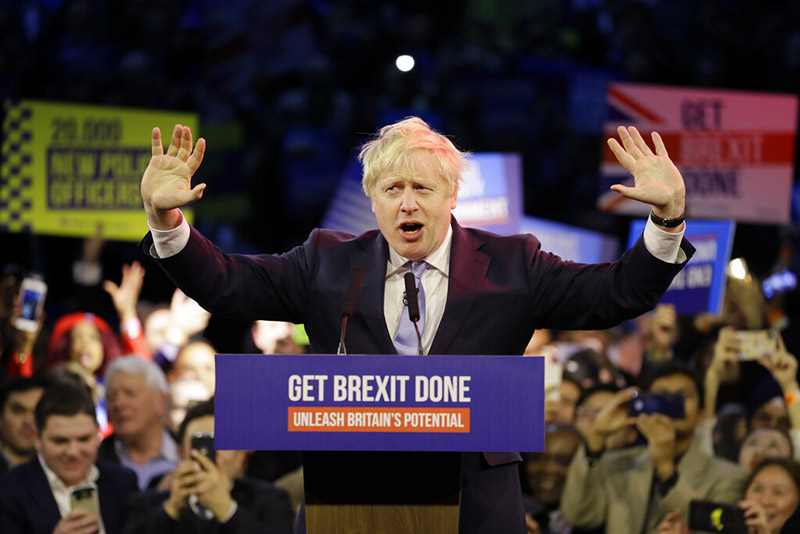Brexit "done" at last - now for the hard part
BRUSSELS: At the stroke of midnight in Brussels on Friday, Britain will leave the European Union and Prime Minister Boris Johnson will deliver on his election promise to "Get Brexit Done".
But he won't have long to savour the triumph of a divorce that, over 3-1/2 years, shook British politics to the core and polarised the nation. Feb. 1 will mark the beginning of a new phase of negotiations between London and Brussels to agree on the shape of their future relationship.
They have until the end of 2020 -- a transition period during which Britain will remain an EU member in all but name -- to hammer out an agreement on trade and other issues including security, energy, transport links, fishing rights and data flow.
Johnson says 11 months is time enough to strike a "zero tariff, zero quota" trade deal and has vowed -- even though the option is there -- not to extend the limbo period beyond 2020.
CLIFF EDGE "A DISTINCT POSSIBILITY"
If they fail, the legal default will be a potentially crippling no-deal Brexit that would leave trade between Britain and the EU based from 2021 on World Trade Organization terms that would impose import duties and controls.
EU Brexit adviser Stefaan De Rynck said this week that a cliff edge "remains a distinct possibility" because finding common ground by Dec. 31 will be harder than agreeing divorce terms as the two sides did in October, more than three years after Britons voted to leave the bloc in a referendum.
Trade agreements with the EU typically take years to complete, and few in Brussels believe the transition period will be long enough to seal more than a "bare bones" trade deal.
EXPECT A STAND-OFF OVER FAIR COMPETITION
Getting more than that would be easier if Britain was willing to remain aligned with EU regulations, but London insists it will not be "a rule-taker".
Britain's concern is that keeping to EU rules would make it harder to strike trade agreements with other countries, especially the United States.
The EU says it will not seal a trade deal with a large, economically powerful neighbour without solid provisions to guarantee fair competition.
Its demands will focus on "level playing-field" issues -- environmental and labour standards, as well as state aid rules -- to ensure Britain would not be able to offer products on the bloc's single market at unfairly low prices.
Sam Lowe of the Centre for European Reform think-tank said Britain's desire for full control of domestic regulation and trade policy will significantly limit the scope of any deal.
"At best, the EU and UK are on course to conclude a free trade agreement that removes all tariffs and quotas, but creates significant new administrative and regulatory barriers to trade in both goods and services," he said.
FISH FIGHT AHEAD
With industry supply chains in the EU currently crossing borders multiple times for products like cars and drugs, agreeing rules to designate where products come from -- and hence what regulations and taxes apply -- will be complicated.
But one of the biggest hazards on the road to a deal will be fishing rights, sparring over which has already begun.
Regaining control of Britain's rich fishing waters was a totemic issue for many Brexit campaigners, but Brussels has linked access for EU boats to access to EU markets for Britain's giant financial sector.
JUST A FEW MONTHS TO SEAL A DEAL
Although on paper the EU and Britain have 11 months to strike a deal on future relations, in reality the timeframe is much smaller.
Talks will not formally start until after EU governments agree a negotiating mandate late next month.
The two sides would then have to strike an agreement by the middle of October to leave time needed to translate the treaty into the EU's 23 official languages and secure the required parliamentary ratification before year-end.






